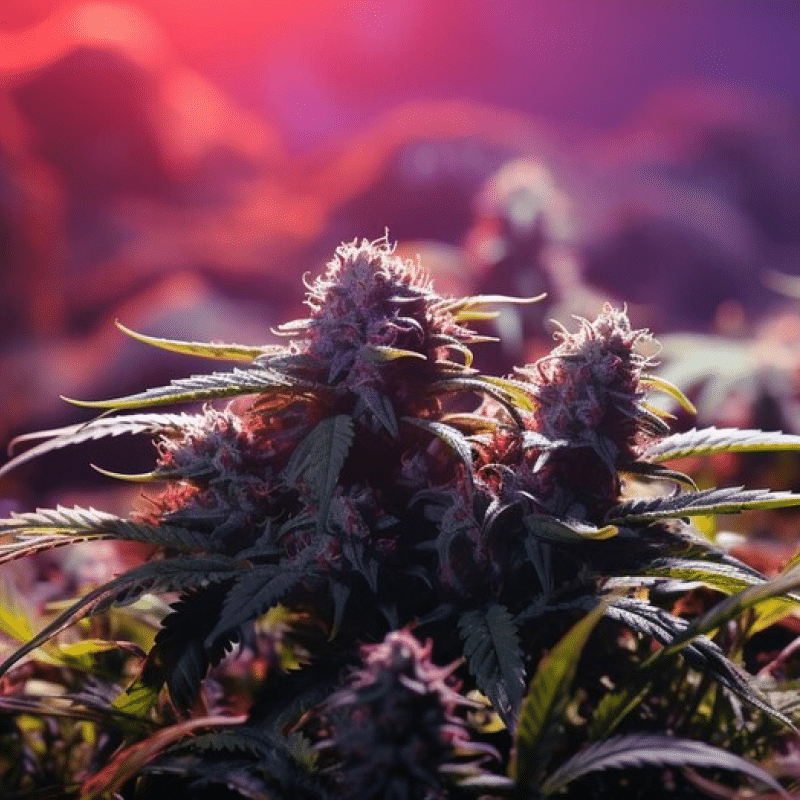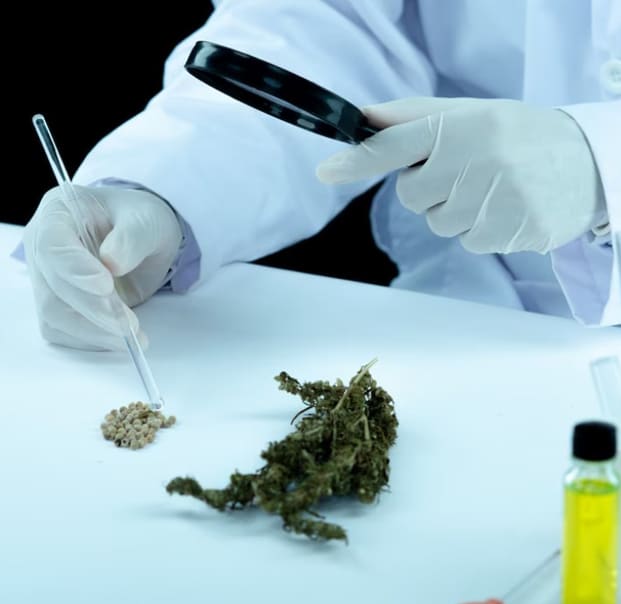Background
Florida’s journey toward cannabis legalization has been focused on medical use. In 2016, Florida voters approved the Florida Medical Marijuana Legalization Initiative, also known as Amendment 2.
This marked a significant shift in the state’s approach to cannabis, leading to the establishment of a structured medical marijuana market along with a number of medical marijuana treatment centers.
Types of Cannabis Licenses in Florida
Cultivation Licenses
Permits for growing cannabis, with various tiers based on facility size and growing conditions.
Manufacturing Licenses
Allows for processing cannabis into various products, including extracts and edibles.
Retail Licenses
Enables the operation of dispensaries and delivery services for medical and/or recreational use.
Distribution Licenses
Required for transporting cannabis products between licensed facilities.
Cultivation Licenses
Only MMTCs can cultivate. Vertical integration required. Licensing limited and highly competitive.
Back to the TopManufacturing Licenses
Must be part of MMTC. Product manufacturing includes extractors and processors.
Back to the TopRetail Licenses
Retail sales only allowed by licensed MMTCs. Requires seed-to-sale tracking and in-house production.
Back to the TopDistribution Licenses
Transportation allowed within MMTCs. No external distribution licenses.
Back to the TopHow to Obtain a Cannabis License in Florida
Comprehensive Research and Preparation
Market Analysis: Study the Florida medical marijuana market, its scope, and potential growth areas.
Regulatory Understanding: Stay updated with Florida’s medical marijuana regulations and compliance requirements.
Site Selection: Ensure the chosen location adheres to local zoning laws and state regulations.
Risk Assessment: Identify potential financial, regulatory, and operational risks.
Building Networks: Connect with industry stakeholders, including legal experts, suppliers, and other medical marijuana businesses.
Develop a Solid Business Plan
Outline your target market, financials, marketing strategies, and operational plans, vital for your license application.
Assemble the Necessary Documentation
Prepare all required documentation, such as an identification card or a driver’s license, business registration, details about the people who own marijuana facilities, and operational plans, ensuring compliance with Florida’s regulations.
Submitting the Application
New License Application: Apply via the OMMU to get a medical marijuana license, providing accurate details along with required documents and fees.
License Renewal: Be proactive about renewal deadlines and updating any business changes. Ensure that you fill out the online application and renewal fee before submitting a formal request for renewal.
Agent Card Requirements: For specific roles, ensure eligibility criteria are met, including background checks.
Employment Limitations: Understand restrictions related to criminal history.
Payment and Fees
Note: Fee structures are subject to change. Consult the official Florida cannabis regulatory website for current fee schedules.
Application Fees
The application fee covers the initial costs associated with processing and reviewing cannabis business license submissions in Florida. These fees vary depending on the type of license and the size of the proposed operation. It’s essential to ensure all application materials are complete and accurate to avoid delays or additional costs.
License Fees
License fees are required to maintain compliance and secure operating privileges for cannabis businesses in Florida. These fees are determined based on the license type, such as retail, cultivation, or distribution, and are typically due annually. Staying current with license payments is crucial to avoid penalties or disruptions in business operations.
Application Review and Compliance Inspection
Your application will undergo a review and a compliance inspection by regulators as per Florida law. For example, you should only sell to patients with a qualifying medical condition. A qualified patient who’s a seasonal Florida resident may be subjected to different laws.
Post-Application Steps
Once approved, begin your medical marijuana operations, ensuring ongoing compliance with Florida’s regulations.
Risk and Compliance Factors From AlphaRoot
The cannabis industry, while burgeoning with opportunities, is not without its complexities and inherent risks. Understanding and mitigating these risks is crucial for long-term success. AlphaRoot, a prominent insurance and risk management firm specializing conduct business in the cannabis sector, sheds light on the key risk and compliance factors
1. Regulatory and Legal Risks
Labyrinthine Regulations The cannabis industry is highly regulated, and compliance with state and local laws is paramount for cannabis establishments. Navigating the intricate web of regulations, which can vary significantly from one jurisdiction to another, poses a substantial challenge for cannabis establishments. Failure to comply can result in fines, license revocation, or legal consequences.
Federal Ambiguity Cannabis remains illegal at the federal level in the United States, despite state-level legalization of recreational marijuana. This dichotomy creates uncertainties and exposes businesses that sell recreational marijuana here to potential federal enforcement actions.
2. Financial Risks
Cash-Intensive Operations Due to federal banking restrictions, many cannabis businesses operate primarily in cash. This not only presents security risks but also complicates financial management and taxation.
Taxation Challenges Cannabis businesses face unique tax challenges, including limitations on deductions and potential audits. Understanding and complying with tax regulations is essential to avoid financial penalties.
3. Security Risks
Theft and Robbery Cannabis businesses are susceptible to theft and robbery due to the high value of their products. Implementing robust security measures at a marijuana cultivation facility, including surveillance systems and secure storage, is vital to mitigate these risks.
Cybersecurity As with any industry, cannabis businesses are vulnerable to cyberattacks. Protecting sensitive customer data and business information is critical.
4. Product Liability and Quality Control
Product Liability Claims Ensuring the safety and quality of cannabis products is crucial to prevent product liability claims. Contaminated or mislabeled products can lead to legal and financial repercussions.
Testing and Quality Assurance Collaborating with reputable independent testing laboratory and facilities, as required by regulations, is essential to verify the safety and potency of cannabis products. Consistent quality control is essential to maintain consumer trust.
5. Market Competition and Volatility
Saturated Markets in regions with a high concentration of cannabis businesses, competition can be fierce. Navigating market saturation requires effective differentiation and marketing strategies.
Price Volatility The price of cannabis products can fluctuate significantly, impacting profitability. Businesses must adapt to market dynamics and price changes.
6. Environmental and Sustainability Concerns
Resource Intensity Cannabis cultivation and processing can be resource-intensive, including water and energy consumption. Businesses need to address sustainability concerns and adhere to environmental regulations.
Waste Management Proper waste disposal and recycling practices are essential to minimize environmental impact and meet regulatory requirements.
7. Talent and Workforce Challenges
Talent Shortages the cannabis industry often faces challenges in recruiting and retaining qualified personnel due to its specialized nature. Employee turnover can disrupt operations.
Training and Compliance Businesses must invest to ensure employees are well-informed about compliance and safety protocols.
Cannabis License in Florida FAQ
To apply for a cannabis license in Florida, applicants must meet specific criteria set by the Florida Department of Health. These include being over the age of 21, having no felony convictions within the last five years, and demonstrating the ability to operate a business in compliance with all state laws and regulations. Additional requirements may vary based on the specific type of license being applied for, such as cultivation, processing, or dispensing.
The time frame for cannabis license approval in Florida varies based on the type of license and the completeness and accuracy of the application submitted. Generally, it can take several months for a license to be processed and approved. The Florida Department of Health reviews each application thoroughly to ensure compliance with state regulations, which can add to the processing time.
Yes, a business can hold multiple types of cannabis licenses in Florida, especially under the Vertical Integration License, which allows for control over several aspects of the cannabis supply chain including cultivation, processing, transportation, and dispensing. However, businesses must meet all the individual requirements for each type of license they intend to hold and demonstrate their ability to comply with all relevant regulations.
About the Author

AlphaRoot Team
The AlphaRoot marketing team are seasoned experts with deep knowledge of the cannabis industry. Our informative articles help cannabis businesses thrive in a competitive landscape. From compliance to insurance tips, we’re dedicated to providing advice tailored to your needs.




